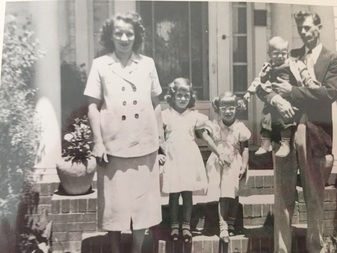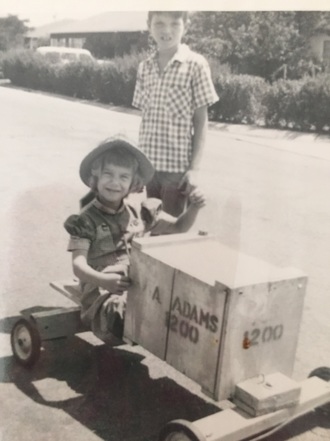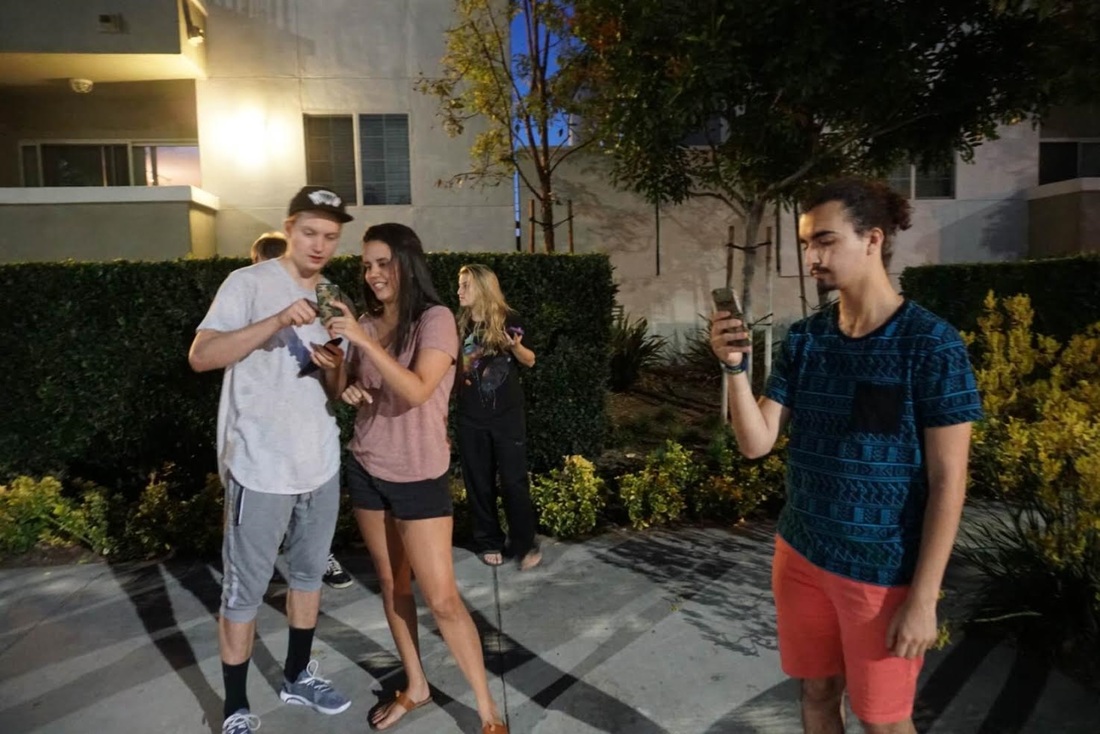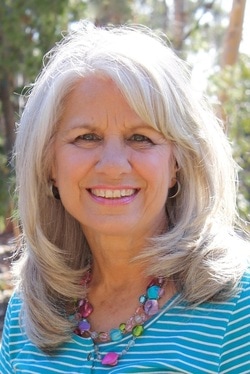resources for your journey with jesus |
|
A quick update from my last blog about the pros and cons of Pokemon Go. I have received a couple of thoughtful, provocative links that explore the spiritual implications of the characters etc. in the game. Not being familiar with the specifics, I didn't cover this aspect in my last post. I wanted to offer two of these here, which I felt were well worth the time and energy to read, particularly if you have children. Just click on the title to read more:
Is Pokemon Evil? (Charisma Magazine) Is Pokemon Safe for Children: A Christian Perspective (Erika Dawson) Finally, on Friday, July 29th, I will be doing an hour-long interview with Chris Fabry and we will be talking about Pokemon Go, plus technology in general as it relates to our spiritual lives. You can listen to it live by clicking here. (3pm CT, 1pm PT)
0 Comments
 Unless you’ve been living under a rock these past couple of weeks, you have encountered the phenomenon of Pokemon Go. Not only is it the biggest mobile game in history, with over 26 million people playing on any given day, but it seems to be surpassing monoliths like Twitter and Snapchat in downloads and users. Since I’m passionate about technology and our souls, I thought I’d throw my two cents in the ring. A big caveat first though: I’ve never played the game—the old or new version, and in fact, have never really been into video games. I have my own digital downfalls, like surfing the web—reading, perusing, posting, getting lost in hyperlinks etc. and the truth is that screen-time, no matter what your pleasure, has a similar effect on our brains, something I’ve covered extensively in The Wired Soul. So what do we need to know about Pokemon Go? I won't go into detail here about what the game is, but if you know as little as I did two days ago, check out this blog—it gives a great overview: And for you gamers—so you can get out there and play as quickly as possible, I’m going to summarize my thoughts in a table of pros and cons.
 So there you have it--some great reasons to play, but some equally important reasons to do so with caution and balance. Having said that, the biggest issue with any kind of digital engagement, is the relationship it has to the state of our souls. As I point out in The Wired Soul, we can learn a lot about what really matters to us by looking at the practices we keep (for a great teaching by James Smith on this, click here) . For example, what does our engagement (or lack thereof) with practices like prayer, Scripture reflection, community or compassion say about the status Christ has in our hearts? On the flip side, we may feel that video games or social media or web surfing and streaming or television don't captivate our heart, but an honest look at the hours we spend online can tell us something altogether different. Beyond our practices revealing something about what we really desire, these things actually have the power to shape our souls, often in ways we simply aren’t aware of. The key here is the word “practices.” For example, playing any video game a couple of times a week for an hour isn’t a practice, but an activity that we do just for fun. But if we care about our souls, we have to go beyond the pros and cons of Pokemon Go or any other endeavor in which we invest our time to ask these two questions:
I've had some great opportunities this week to talk about the things that are dear to my heart regarding my new book, The Wired Soul. If I could sum my passion up in a nutshell, it would be that technology is changing us so quickly and thoroughly that we all run the risk of missing our destiny of walking intimately with Jesus; hearing his voice, following his ways and living out his love in this world where he has placed us. But there is hope--we can make technology work for us instead of it controlling our moments and days.
If you'd like to hear or read what I've been putting out there, here are a few links:
Joe and I were having a lovely seafood dinner with one of my grandsons, when he sent shrimp parts flying helter-skelter as he zealously ripped the tail off. His eyes instantly darted my way, perhaps waiting for a reprimand or stern word about his incessant messiness. I can only imagine how I would have responded as a young mom, but being the grandma that I am, I just winked and handed him a napkin. The experience reminded me of some research that I did for my book, The Wired Soul, where I came across the intriguing principle that “there is no single brain.” Basically, what this means is that our conscious brain is shaped in large measure by thousands of interactions that we have with other people, beginning with our parents and continuing with others throughout our lives. Collecting these from the moment we enter this world, our brain lays down neural pathways that become our story, the reality with which we approach life.  Did we all have those bangs? Did we all have those bangs? You might say we are “wired” to look to others to make sense of who we are or what we are experiencing. In my case, for example, as the fourth of five children to very young parents, I was more than a little precocious. But the story I formulated, probably because my exasperated mom and dad were overwhelmed by the clamor of four other voices, was that I talked too much and was a bother to those who had to listen to me opine day and night. Mind you, while believing this did not shut me up, it did immerse me in a load of shame. It is interesting that God’s call on my life is all about words—speaking, teaching, writing—and thus it took me many years and a lot of encouragement from others to believe that my gift of language was a blessing from him, and not some embarrassing flaw. The reality is that we all need to rewrite parts of our stories that are faulty—that have been formed in a fallen world and do not represent the truth of God’s Word or His pleasure in us as his beloved children. But how? Simply put, we cannot do this alone—there is no single brain.  Mom pregnant with me. Mom pregnant with me. We need relationships—ones that cannot be forged through social media or built via texts, tweets emails and snapchats. Destroying our faulty narratives takes rewiring our brains, and for that we need human beings who are present—ones with physical eyes and ears and tears and blinks and nods and scowls and laughter and touches and hugs and grimaces and smiles and all the kinds of nonverbal communication that technology sorely lacks.  Definitely precocious! Definitely precocious! The beauty is that our brains can be rewired, we can be transformed through renewed minds and softened hearts. To that end, let me make a few suggestions: 1. Remember that children are forming their stories. When you blow it (and we all do), take the time to apologize and talk things through so they understand what is really true about them—you can keep that negative neural pathway from becoming permanent. 2. Go deep with a few trusted friends. We can’t relate this way to everyone, and we certainly can’t broadcast our journey on social media, so the best option is to find a few friends from our community of faith and covenant together to help rewire our brains for the health of our souls. 3. Don’t judge others by the story they live. We all have faulty narratives that direct our lives, so the most important thing we can do for each other is to help process these, reflecting back what we know is true—from God’s character and his Word.
4. Depend on real contact with others to rewrite your story: God created us for community and we cannot even see the landmines in our own stories, much less dismantle them. Let trusted friends into your life and invite their feedback, but because 60-90 percent of our communication is nonverbal, it needs to be done face to face. Today I had the privilege of being the guest blogger on the following blogs:
Christianity Today Her.meneutics: I am no Picasso or Monet, but I do like to doodle during prayer. Read the blog here to find out why, and see what might be sparking this quiet time coloring craze. Way FM Faith and Life: Why your struggle to "be still and know" may not be your fault--find out by reading the blog here. |
Tricia McCary RhodesAuthor of 7 books and pastor of Global Leadership Development at All Peoples Church in San Diego, Tricia specializes in helping others experience God’s presence through practicing soul-care. Archives
February 2024
|





 RSS Feed
RSS Feed